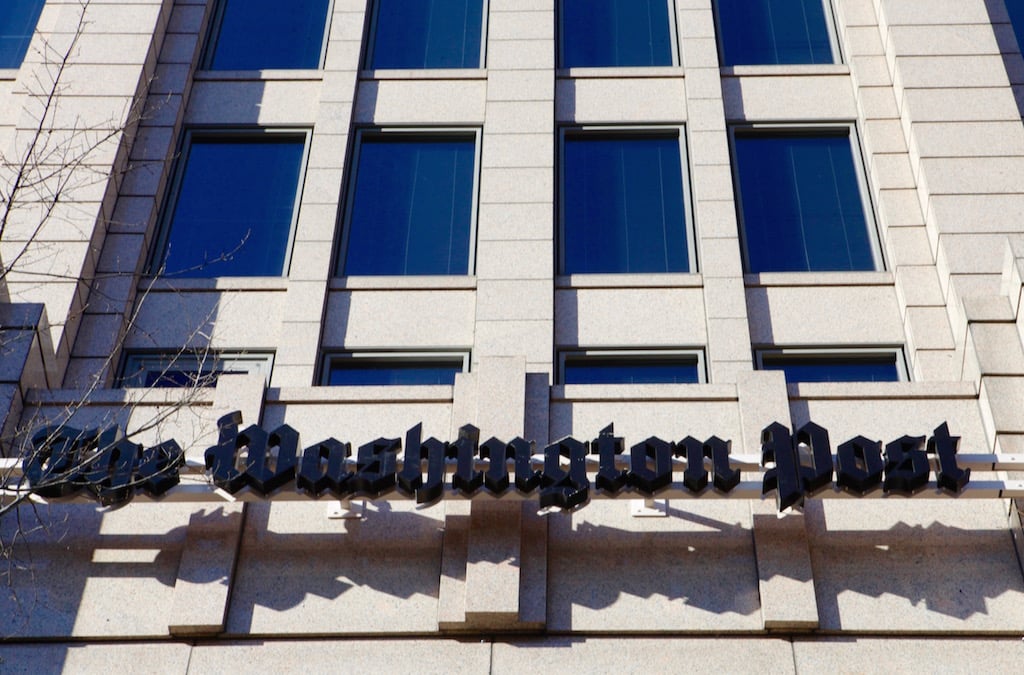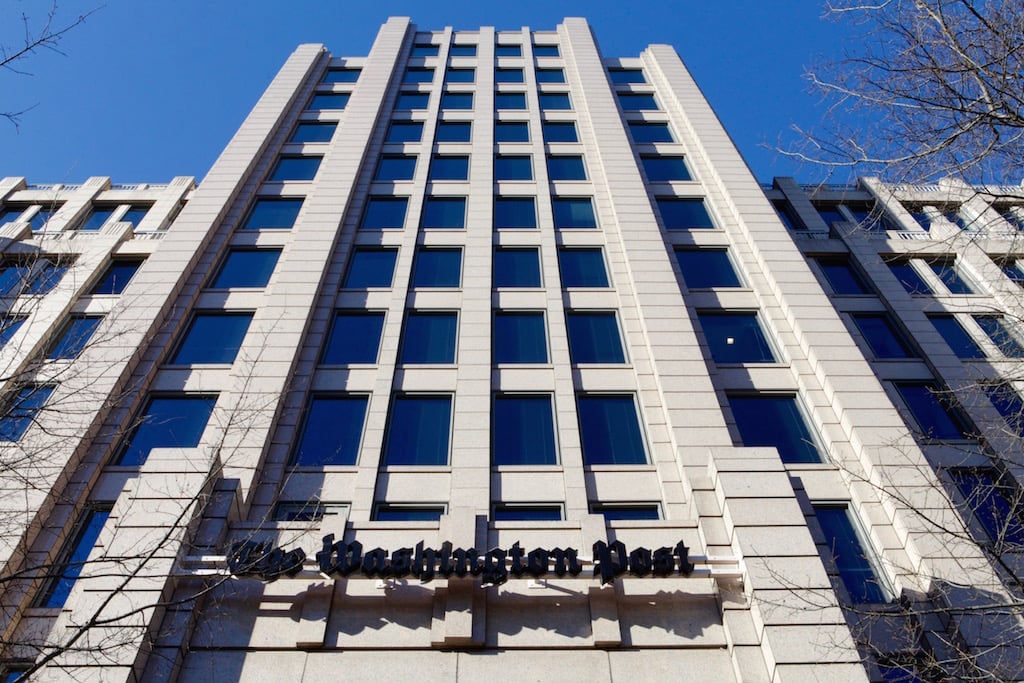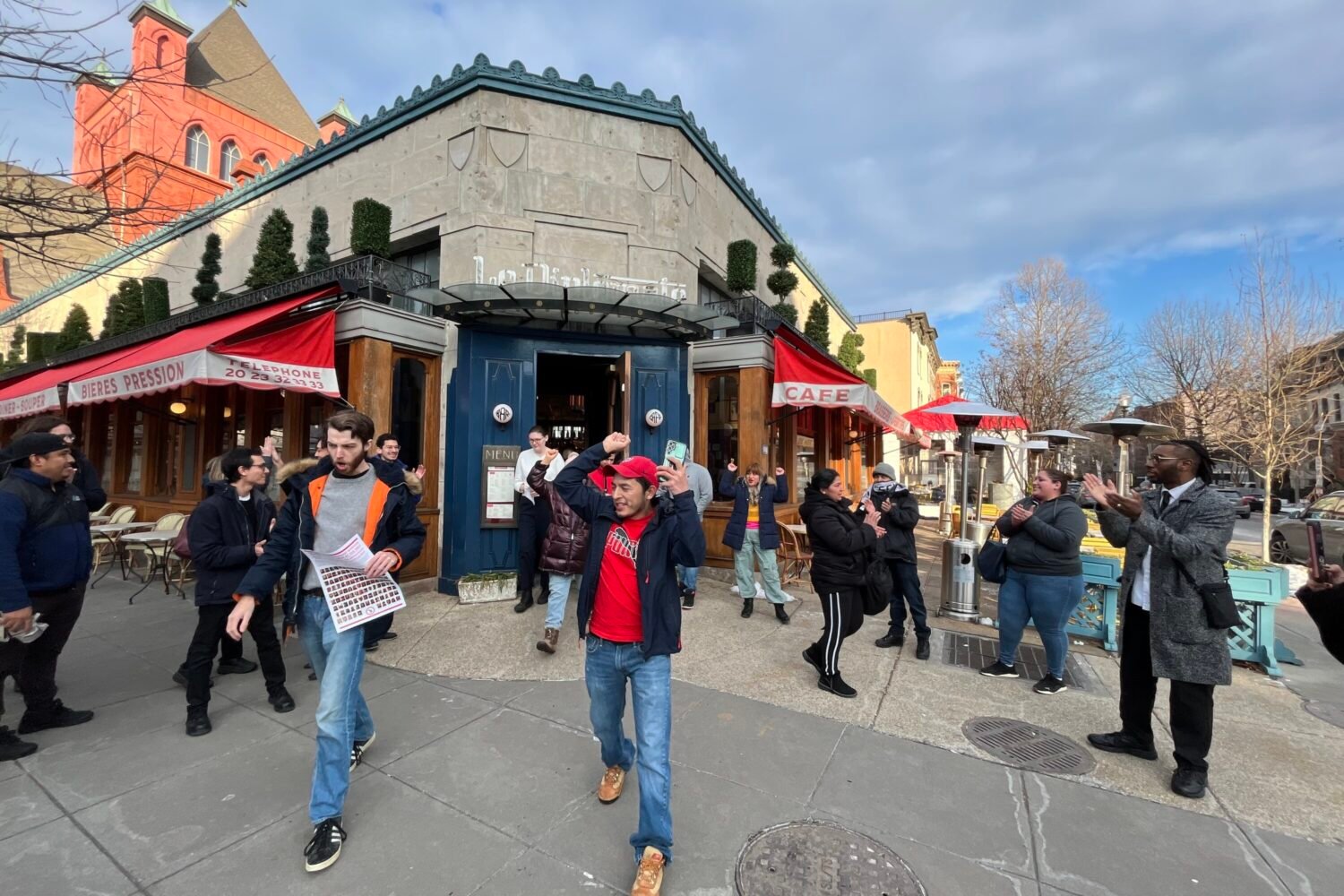More people than expected have volunteered to take buyouts from the Washington Post, according to an email from the Washington Post Guild, the union that represents many of the publication’s staffers. As a result, the Guild claims, managers “are attempting to bribe some colleagues to stay by offering them more money and better jobs at the eleventh hour.”
A Post spokesperson has not yet responded to Washingtonian‘s query as to whether this characterization is accurate, but on Tuesday interim CEO Patty Stonesifer told employees in an email that the Post had met its goal of reducing its workforce, a goal that stood at 240 people when the publication announced its current buyout plan in October.
Initially, people in the newsroom were especially slow to sign up for the “voluntary separation packages” the Post offered, citing revenue projections that it later found to be “overly optimistic.” As of November 28, only 36 people in the newsroom had agreed to leave out of a goal of 120 (Post business and tech staff accounted for the other 120 the publication targeted).
So what happened? The Guild’s email lays the blame on another Stonesifer memo late last month that raised the prospect of layoffs if not enough people took the buyouts package. “I don’t know how else people were supposed to read that,” says Katie Mettler, the co-chair for news of the Post Guild. “By threatening their staff and bungling this process from the very beginning, the company created flight risks that they never needed to create.”
Post staffers in the last few days have received a small email server’s worth of announcements about journalists who’ve decided to leave the publication, though those announcements generally haven’t said whether the departures they reported were because of the buyouts. But some Post journalists have announced publicly that they’ve decided to split, Jura Koncius. John Kelly, Amy Joyce, and Peter Marks among them. (I don’t publish names of people who’ve taken buyouts unless they ask me to do so or they announce them themselves. We’ll likely hear a lot more names this week.)
Does this mean layoffs are off the table for the time being? Stonesifer’s email doesn’t say, and the Post hasn’t yet answered Washingtonian‘s query about that, either. The Guild’s email says “it seems likely that nobody will be laid off during the holidays.” Mettler says Post management returned to the bargaining table after more than 750 staffers staged a one-day walkout on December 7, and despite claiming that its most recent offer to the union was its “last, best and final” one, moved on a few issues. She nevertheless characterizes the movement as “woefully insufficient” and says she isn’t sure whether the Guild and Post management will be able to strike a deal before the end of the year.
The Guild asks members to contact incoming Post publisher Will Lewis to “let him know that he’s inheriting this mess come January,” as Mettler puts it, and to ask him to intervene so everyone can start fresh in 2024.
Here’s Stonesifer’s memo:
Good morning to all of my Post colleagues — I wanted to let you know that we have now confirmed that the number of people accepting the Voluntary Separation package has met our goal for 2024. We will enter the new year with a smaller organization but a better financial position on which to continue and build a great future for The Washington Post.
I am very aware of how difficult this process has been for everyone involved and I want to thank you for the grace and respect you have shown at every step. Join me in recognizing the contributions of all our colleagues — in news, editorial, client solutions, subscriptions, engineering, product, data & analytics, customer care & logistics, production, finance & operations, HR, legal, ArcXP and PR, brand & WP Live — as we exit this year.
Patty
Here’s the Guild’s note:
All —
At the table last week we asked for a promise of no layoffs until at least April. The company ignored us. Again this morning, Patty made no explicit commitment of no layoffs in her email to the staff, though it seems likely that nobody will be laid off during the holidays.
We know the huge relief that brings to everyone at The Post after a painful year.
The company wants us to believe that hitting its caps meant that 240 of our colleagues saw the buyout as a gift. But we know that narrative is a lie. There are certainly people who accepted the package because they felt it was right for them, their careers and their families; we are happy for those colleagues though we will deeply miss them. But for many others, this did not feel like a choice at all. The company made it seem as though they had no future at The Post. They were threatened with layoffs and made to feel undervalued, disrespected and disposable.
And now, because of those threats, the company seems to have exceeded its buyout goal — and is now panicking. Managers have realized they cannot, in fact, make The Washington Post without us, and are attempting to bribe some colleagues to stay by offering them more money and better jobs at the eleventh hour. Meanwhile, they rejected our request for fair wages at the table and still haven’t directly confirmed that the rest of our jobs are safe. In effect, all they’ve really told us today is that both the Guild and the protections of a strong contract are more important than ever.
This latest example of Washington Post mismanagement means that people who wanted to leave were denied the opportunity and those who never had any intention of leaving were unnecessarily bullied out. The list of people leaving is heartbreaking: Pulitzer winners. Mentors. Rising stars. A whole generation of institutional knowledge and wisdom. Advocates who have fought tirelessly to make this place better.
For those of us still at The Post come January, our workplace will look entirely different. We will have to do more work with fewer people, amid two wars and an election that will again challenge the very foundation of our democracy.
And we’ll be doing it for pay that doesn’t keep pace with inflation or our competitors.
More than 750 of you walked out on Dec. 7 because you wanted the company to know that we’re worth more. The least they could do is offer a contract that keeps up with the economy, preserves our rights and makes us feel that it’s worth staying at The Post.
We know so many of you are mad as hell about this. We are, too. It’s time to channel that anger into action.
Starting TODAY we’re asking you to:
- Send a letter via email to our new publisher Will Lewis. Tell Will why you think what is happening at The Post is unacceptable, and that he will have an impossible time building trust with us if he doesn’t do something to get Guild members a better deal between now and the end of the year. (Be sure to cc or bcc wapounion@gmail.com so we can keep track of your messages.)
- Share this statement from the bargaining committee on social media, updating all the readers who supported us with the latest information about our contract fight.
- Encourage the public to keep writing letters through our campaign. We’re updated the text and want the publishers’ inboxes flooded again.
- And for our friends who are leaving via the VSP: We want to track what The Post has lost with your departure. Would you consider filling out this form to help us quantify all your gifts and contributions?
We’ll soon share more information on additional actions this week.
Remember that The Post is nothing without all of us. Only we can make the company profitable again. Only we can keep producing award-winning work. Only we can ensure that the future of The Post is as bright as its storied past.
In solidarity,
Guild leadership
Disclosure: Washingtonian’s editorial staff, like the Post Guild, is also represented by the Washington-Baltimore News Guild.


















